According to official figures, a total of 789 nuclear safety events were recorded at HM Naval Base Clyde at Faslane and Royal Naval Armaments Depot Coulport in the 12 years between 2006 and 2018.
According to the figures, one Category A incident took place in 2008 when water overflowed from a now-decommissioned primary effluent barge. Another was recorded in 2006.
Category A events have “actual or high potential for radioactive release to the environment of quantities in excess of IRR99 notification limits” but it should be noted that in neither event was any radiological contamination evident
Defence Minister Stuart Andrew said:
“I would wish to reiterate that the identification and reporting of these low-level events and near misses is actively encouraged in line with International Atomic Energy Agency guidance for protecting people and the environment, since such data can provide valuable lessons to help avoid more significant events.
None of the events caused harm to the health of any member of staff on the Naval Base, or to any member of the public.”
In addition, the MoD also revealed there have been 22 fires on its nuclear submarines since June 2015
The figures were revealed in letters to an SNP MP, Deirdre Brock, who had requested them. Brock said:
“It’s a shocking record of accidents and incidents in places where the most dangerous weapons on the planet are. We already knew that there were 505 nuclear safety events on board submarines while they were berthed at Faslane and now we find that there have been another 284 in other locations at Faslane and at Coulport where weapons are handled.”


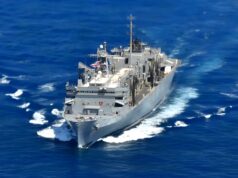
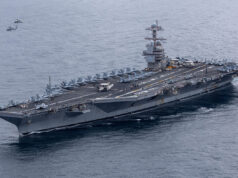
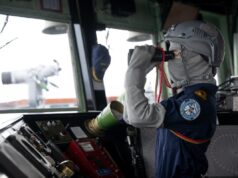

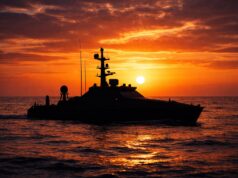

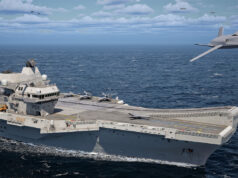

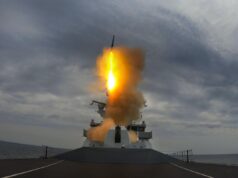
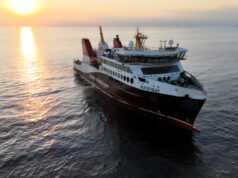

A good example of figures been manipulated for a particular cause. The majority of incidents are admin related with zero practical effect. Many near misses are speculative situations, almost ” what if ” situations, so the worst case scenario is recorded as the near miss. This is the unfortunate side effect of having an extremely detailed and accountable safety regime. If the same level of safety accountability were to be applied to say the oil refinng industry they would be shut down through public safety fears.
Well said. Engineering and safety standards in the nuclear industry are second to none.
They need to define “event”. A water leak unrelated to a reactor or pile of waste uranium is hardly relevant.
The inner sanctum of Faslane where the Bombers, SWSB and other sensitive bits are is protected by that floating boom or whatever it is. Not sure that’s is the correct name for it?
I presume it goes beneath the surface too to deny access to frogmen.
Could this be used in Gib if Spanish vessels are such a problem?
I think Gibs a bit to busy for the floating boom like faslane has, opening and closing it all the time would be a nightmare, fast intercept boats are better for Gib waters with maybe a bigger RN boat for show of force also.
As the article states any organisation that takes safety seriously encourages the reporting of any incident or near miss so it can be analysed and lessons learnt applied. Clearly a SNP politician has requested the information to use it for political gain.
789 over 12 years – rubbish.
Should be aiming for hundreds a year. The more you identify, the better one can trend and analyse the data, to surer we can be of driving out the root causes of more serious accidents.
Fewer reports is indicative of a culture that is not driving safety, not proactively trying to improve working methods, not looking to identify and control threats.
In many industries, such low figures as these would be considered poor.
What If, Fewer Reports were due to already having a successful Culture of Safety . ????
Yes, I know, I think It might upset those earning Mega Bucks Introducing so many Restrictions In the Name of Safety. I remember when We could all Wipe Our own Arses Clean, without all the Crap, so to speak.
Where will It all End ?
And therein is the conundrum.
There was a bizarre H&S campaign by the HSE along the lines of “Zero Harm” lots of idiotic signs outside construction sites and factories recording how many days since there was a an incident of XYZ type.
Of course nobody at board level in an organisation wants a sign outside saying someone was injured.
So pressure then came down to make the numbers zero.
Reporting therefore was predictably towards zero.
Harm level actually increased.
I don’t accept the earlier point about oil refining – reporting there is better as there is a strong commercial interest to prevent the plant being destroyed. When things go wrong in a refinery they tend to go very wrong very quickly.
When working for for Babcock (who were working for National Grid ) on the overhead power lines we were told off for not putting in enough near misses
I had to visit a Building Site a While Back, The Foreman thing, ( No Neck, Attitude, Fat and A tad Abrupt ) Told me to read the H&S stuff and the Rules and Reg’s, so I did, I Sat there for Hours and Hours Reading them, then Went Home. Got a call from the Company I was working for asking Why I hadn’t done any Work, So I told them I spent All Day Reading the Rules and Reg’s. Apparently a Hard Hat would Protect my head from falling Girders. So I had to wear one or I’d not be allowed on site due to H&S.
The only figure to raise a meh is the fires in the submarines. And that’s barely a meh.
Yes you may be right. Just struck me seeing that well known photo.
Sorry that was for Cam further above.
But even fires on ships / subs is open to misinterpretation. As all sea going people know, fires onboard are quite common, The environment of fuel, gas, electrical systems, salt water, heat and all in compact confined spaces is the perfect storm for fires. But the point is, even the smallest electrical short generating a whiff of smoke, or an slightly overheating heat exchanger which triggers a mythnerva fire alarm are all recorded as a fire related incident. So the actual number of true life threatening fires is not identified.
if that were an oil platform the HSE would have closed it down.
They’re obviously lacking a safety culture and with no overseer, like the HSE, its a major accident waiting to happen
The actual benefits of a nuclear sub base to the lcoal economy are grossly overestimated. Helensburgh isn’t looking too great these days.
The majority of Scots would be delighted if Trident were moved.
Why would anyone want vast numbers of WMD’s miles from their house (i’m only 15 miles away) and the nuclear road convoys are not a pretty sight either.
Move them south indeed